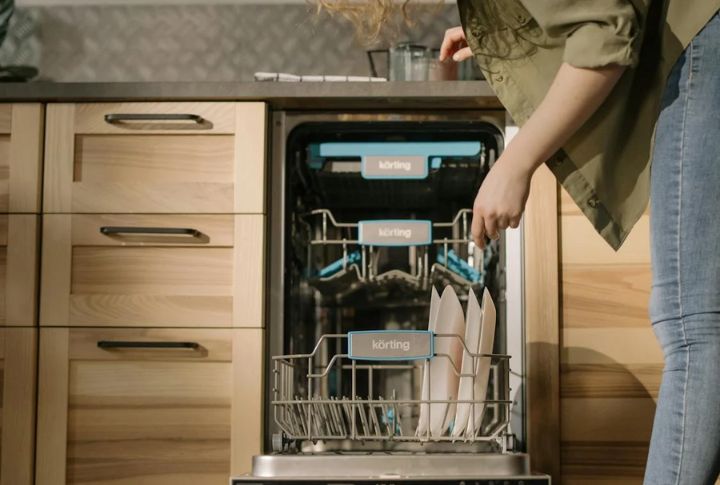
Family chores are the necessary evil that keeps our homes running smoothly—except when everyone’s calendar looks like a game of Tetris. But fear not! With a bit of strategy and some family teamwork, you can turn the chore chaos into a well-oiled machine, even when schedules are completely out of sync. So, let’s take a look at 20 tips to balance everything together.
Create A Family Chore Calendar

Imagine a world where people know exactly what needs to be done—and when. A family chore calendar lets everyone in the house stay informed, helping each person manage their tasks without confusion. With everyone on the same page, chores become less of a surprise and more of a team effort.
Assign Chores Based On Strengths

Does your teenager love organizing, or is your spouse a kitchen whiz? Assigning chores based on personal preferences makes tasks feel less like a burden. Plus, it turns routine duties into a showcase of individual skills.
Use Digital Tools To Streamline Tasks

Apps like Cozi and Todoist can turn household chore management into a breeze. These tools allow real-time updates, easy task delegation, and reminders. A family’s busiest member can still contribute, thanks to accessible tech that keeps everyone in the loop.
Make Chores A Part Of Family Time

Picture everyone folding laundry while listening to your favorite playlist or dusting the shelves during a mini dance-off. Combining these tasks with family fun transforms an ordinary chore session into an engaging, laughter-filled event that makes everyone feel connected.
Delegate Chores During Downtime

Take advantage of moments when you’re not fully occupied. Waiting for dinner to cook or watching TV? Use these breaks to sweep or even empty the trash. It’s an effortless way to keep the house clean without disrupting your schedule.
Set A Specific Time For Weekly Chores

Consistency is key. Setting aside the same time each week for household tasks ensures everyone knows when they’re expected to pitch in. Whether it’s Sunday morning or Friday afternoon, making chore time non-negotiable keeps your home running smoothly.
Rotate Tasks To Avoid Boredom

No one enjoys repetitive chores. By rotating responsibilities, everyone gets a break from the monotony. If one family member is tired of sweeping, swap it with someone who’s ready for a new challenge. This keeps things fresh and engaging for all.
Break Down Large Chores Into Smaller Tasks

Overwhelmed by a big task? Break it down. Dividing chores into smaller, bite-sized steps makes them more manageable and less intimidating. For instance, cleaning the entire kitchen can be split into washing dishes, wiping counters, and sweeping floors—simple, right?
Incorporate Chores Into Daily Routines

You’re already brushing your teeth; why not wipe down the bathroom counter while you’re at it? Incorporating chores into daily routines makes them feel less intrusive. Plus, by embedding tasks, chores won’t feel like a hassle at all.
Set A Timer For Quick Task Completion

Set a timer for ten minutes and challenge family members to complete as many chores as possible before it rings. Such a sense of urgency can make tasks feel less daunting, and you’ll be surprised by how much you can accomplish.
Keep The Chore List Short

Avoid overwhelming yourself with too many tasks. A shorter, more realistic list keeps everyone focused and motivated. Instead of having 20 items on the list, prioritize the top five. Focused energy yields better results, which makes it easier to stick to your schedule.
Communicate Openly About Family Schedules

Communication is vital. Keep everyone in the loop about personal schedules so you can plan chores effectively. If one person has an important meeting or event, the family can adjust the timing. Open communication also helps manage conflicting schedules without added stress.
Combine Errands With Household Tasks

Efficiency is key when juggling schedules. Instead of running errands and doing chores separately, combine them. Pick up groceries while a load of laundry runs. This multitasking reduces the overall time needed to complete everything and maximizes your schedule.
Offer Rewards For Task Completion

Reward systems don’t just work for kids—they can motivate anyone. Whether it’s a special family movie night, a favorite meal, or extra screen time, incentives encourage everyone to finish their chores on time. Plus, make the reward something to look forward to.
Set Clear Expectations For Each Family Member

Ambiguity causes confusion. Set clear, simple expectations for what needs to be done. Discuss with family members what each chore entails and the time frame for completion. This ensures everyone is aligned, preventing misunderstandings and keeping things running efficiently.
Encourage Teamwork For Larger Chores

Larger chores, like deep cleaning or organizing the garage, can be tackled more efficiently as a team. Divide the task into sections and work together to get it done faster. Teamwork fosters collaboration, and the shared goal of completion helps everyone stay motivated.
Adjust Schedules Based On Flexibility

Life happens. Sometimes, schedules change unexpectedly. Encourage family members to be flexible and adjust chores as needed. If someone can’t do their chore at the designated time, they can swap with someone else. Flexibility ensures that the workload remains balanced.
Simplify Tasks With Efficient Tools

Investing in time-saving tools can make chores feel less like a burden. Robotic vacuums, self-cleaning ovens, and fast dishwashers can take some of the work off your plate, freeing up more time for other tasks. The right tools can truly streamline household responsibilities.
Make Chores A Learning Opportunity

Chores provide a valuable opportunity to teach children life skills. Whether it’s folding laundry or setting the table, these tasks can help build responsibility and independence. As children learn, they also become more involved, easing the burden on parents and contributing to the household.
Establish A No-Excuses Rule

Hold everyone accountable. Establishing a no-excuses rule means everyone in the family understands their role in keeping the house clean. If someone can’t finish their chore, they need to communicate and either reschedule or swap tasks.

